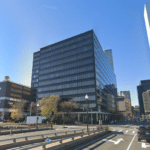
Fidelity Investments Offers HQ for Lease
Fidelity Investments has indicated it will vacate its headquarters near Boston’s South Station in entirety after it opens its refurbished Commonwealth Pier offices in the Seaport District.

Fidelity Investments has indicated it will vacate its headquarters near Boston’s South Station in entirety after it opens its refurbished Commonwealth Pier offices in the Seaport District.

Greater Boston’s office availability rate reached a record high of 20.2 percent at the midyear mark after another declining quarter for leasing activity and uptick in sublease space.

The anchor tenant of the Hub on Causeway is offering the bulk of its remaining office space for sublease amid a continuing surge of givebacks in Boston towers.

Asking rents declined at downtown Boston office properties as the availability rate approached 20 percent at the end of 2022, the highest level in two decades.

A handful of high-profile leases at trophy office buildings couldn’t mask declining occupancy in Greater Boston’s office market during the third quarter.
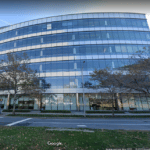
Biogen is offering over 263,000 square feet of office and research space in Cambridge and Weston for sublease in the latest retrenchment of the life science industry’s local footprint.

Asking rents for class B office properties in Boston declined by double digits while availability rates hit near-record highs of 22.3 percent.

Construction crews topped off the 43-story One Congress tower at Boston’s Government Center as a brokerage report detailed signs of a recovery in the city’s office market including an uptick in asking rents.
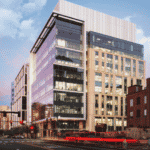
A long-coveted Kendall Square tech office appears to be under agreement to be occupied by Facebook, expanding its presence in the Cambridge tech hub by 263,000 square feet.
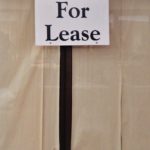
Boston office vacancies hit 15.7 percent in the first quarter but signs of a gradual recovery are starting to emerge in the post-pandemic outlook, according to a brokerage report.

After a year of disruption to office occupancy, tenants have more leverage to negotiate deals with landlords in Boston and other cities with gluts of sublease space.

Alcoholic beverage delivery app Drizly is expanding in Back Bay with a 30,665 lease at 501 Boylston St.

Landlords of second-tier office buildings in Boston have begun reducing asking rents amid a pandemic-induced decline in occupancy, and a brokerage report predicts their class A counterparts are likely to follow suit this year.

The fallout from the current health crisis continues to affect Greater Boston’s office market, with fundamentals wavering further during the third quarter of 2020.

Just as COVID-19 has widened inequities throughout the U.S. economy, the pandemic is separating commercial real estate sectors into stark categories of haves and have-nots.
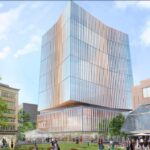
Local commercial real estate researchers are tracking nearly 500,000 square feet of sublease space in Greater Boston that’s hit the market since mid-March as the area faces questions about the future of office space and a sizable construction pipeline.